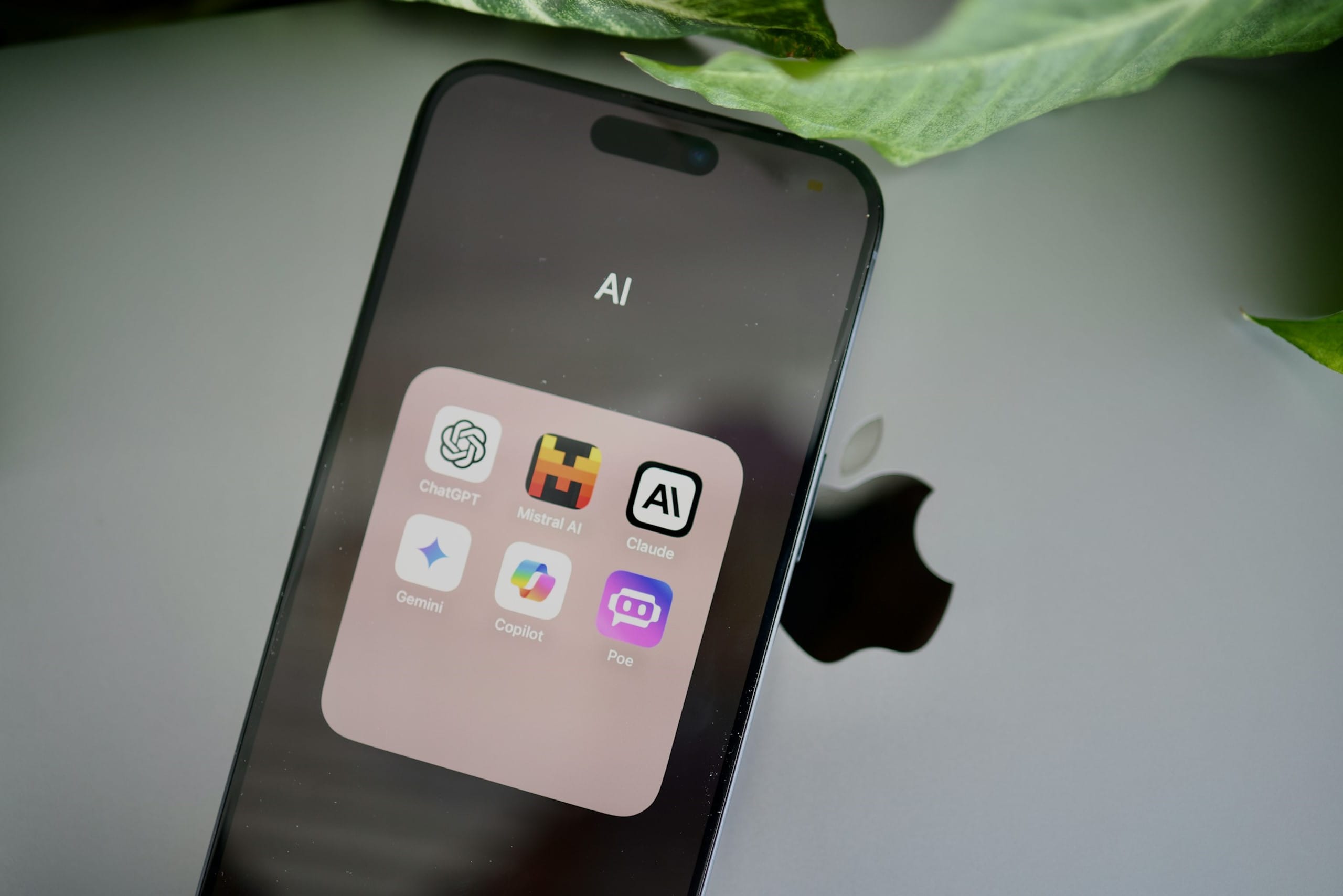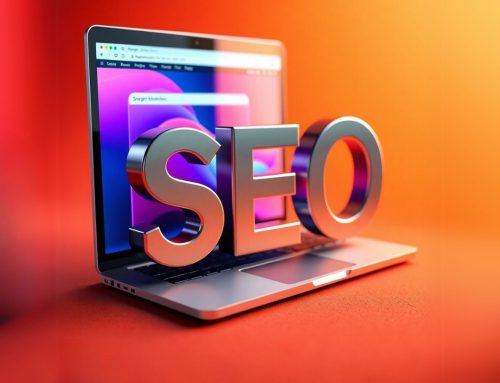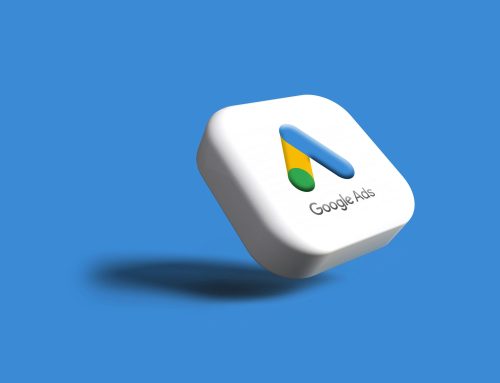Increase Leads, Save Time & Scale Your Business
AI-powered marketing is no longer optional. It’s the game-changer separating market leaders from businesses struggling to keep up. In 2024, many saw artificial intelligence as a curiosity. As we enter 2025, companies failing to integrate AI into their marketing toolkit risk losing valuable opportunities to increase leads, automate engagement, and scale efficiently.
The data speaks for itself:
- AI-driven email marketing leads to a 13% increase in click-through rates and a 41% rise in revenue (Adobe).
- Almost 70% of advertising is now AI-enabled, and by 2029, that figure is expected to exceed 94% (Accenture).
- 72% of businesses have adopted AI for at least one business function (Forbes).
But simply using AI isn’t enough. Without the right strategy, businesses waste time, money, and resources on trial-and-error AI experiments that fail to deliver ROI.
That’s where Creative Elements Consulting comes in. We understand how to integrate AI into high-performing marketing strategies tailored to your business. Our approach ensures AI works as a scalable growth engine, driving customer acquisition, increasing conversions, and automating smarter—not harder.
Through extensive testing and real-world application, we’ve identified a few AI marketing tools that actually move the needle, so you don’t have to waste time figuring it out alone. Below, we break down a few tools that can deliver great results when integrated into a custom marketing strategy.
1. AI-Assisted Content Creation & Copywriting
Notable Tool: Jasper AI
Jasper AI transforms content marketing by streamlining production and enhancing audience engagement. But without expert guidance, businesses risk publishing content that feels robotic, off-brand, or misaligned with their ideal customers.
Common AI Copywriting Pitfalls:
❌ Over-Reliance on Automation: Many businesses assume AI-generated content is “set it and forget it.” But AI lacks the nuance of human emotion and strategic brand messaging.
✅ Our Approach: Use AI as a tool, not a human replacement, ensuring every piece of content maintains authenticity, resonates emotionally, and aligns with your brand’s voice.
❌ Lack of Brand Consistency: Outputs vary dramatically based on the prompts and training data fed to the AI tool. Without fine-tuning, your messaging will feel inconsistent.
✅ Our Approach: Craft custom AI prompts and refine content workflows to ensure your brand voice stays on point and consistent across all platforms.
❌ Ignoring Editing and Refinement: AI is not perfect! It often generates generic, surface-level content that needs human oversight.
✅ Our Approach: Every piece of AI-generated content undergoes strategic refinement by our marketing experts to enhance engagement, optimize SEO, and drive conversions.
AI Prompts Matter More Than You Think
AI-generated content is only as good as the input it receives. The right prompts can create compelling, audience-focused messaging, while vague or generic instructions result in uninspired, irrelevant content.
👉 The Creative Elements Advantage: We craft AI prompts strategically to maximize content quality, tone, and relevance.
Case Study: Coca-Cola’s AI Marketing Failure
In 2024, Coca-Cola released an AI-generated holiday advertisement aiming to blend their traditional festive themes with modern technology. Instead of resonating with audiences, the ad was met with significant backlash. Viewers described it as a “creepy dystopian nightmare” and criticized its lack of warmth and authenticity.
💡 Marketing Takeaway: Coca-Cola’s AI-generated ad failed because it prioritized automation over human emotion. Instead of evoking nostalgia and connection, it felt artificial—proving that AI alone cannot replace genuine storytelling. Successful AI-driven content blends automation with human creativity to ensure messaging remains engaging and relatable.
Want to see how AI-assisted content can drive real marketing success? Let’s create a strategy together!
2. AI-Powered SEO & Keyword Research
Notable Tool: Semrush Keyword Magic Tool
Semrush’s Keyword Magic Tool leverages AI to analyze vast amounts of search data, keyword trends, and search intent, helping businesses precisely refine SEO strategies. But AI-driven SEO without human oversight can lead to content misalignment and wasted ad spend.
Common AI SEO Pitfalls:
❌ Keyword Stuffing & Over-Optimization: AI tools suggest high-volume keywords, but using them incorrectly leads to spammy content that Google penalizes.
✅ Our Approach: Balance AI-driven keyword insights with human-led content refinement, ensuring your rankings increase without triggering Google’s spam filters.
❌ Ignoring Search Intent: AI keyword tools provide data-driven suggestions but don’t fully understand user intent.
✅ Our Approach: Conduct intent analysis to ensure SEO strategies align with real customer search behavior.
❌ Overlooking Competitor Analysis: AI tools identify competitor keywords, but they don’t properly analyze brand differentiation, positioning, or market relevance.
✅ Our Approach: Use AI insights alongside competitive analysis and brand strategy to help our clients dominate their niche.
SEO Is More Than Just Keywords
Many businesses believe SEO is just about adding the right keywords, but today’s search engines rank pages based on engagement, credibility, and user experience.
Weak SEO Strategy: Using AI-powered SEO platforms to optimize keywords but ignoring readability, authority signals, and User Experience (UX).
Strong SEO Strategy: Combining AI-driven optimization with E-E-A-T best practices (Experience, Expertise, Authoritativeness, and Trustworthiness), expert citations, and high-quality content.
👉 The Creative Elements Advantage: Our SEO approach ensures your site ranks higher—not just temporarily, but for long-term visibility.
Real-World Example: Why AI-Only SEO Fails
JCPenney faced significant penalties from Google for employing black hat SEO tactics, including keyword stuffing. Their search rankings plummeted after Google’s manual review exposed their attempt to game the algorithm, highlighting the risks of prioritizing keywords over genuine, user-focused content.
DoorDash struggled with search functionality issues, leading to irrelevant results when users searched for general food categories like “pizza” or “Chinese.” To fix this, DoorDash re-engineered its search pipeline using AI and machine learning, improving search relevance and customer experience.
💡 Marketing Takeaway: AI-powered SEO is powerful, but human oversight ensures keyword strategies align with search intent and brand goals.
Want to dominate search rankings? Book a free consultation and discover how AI-powered SEO can drive lasting growth.
3. AI Chatbots & Customer Engagement
Notable Tool: Tidio (for WordPress)
Tidio AI-powered chatbots provide 24/7 customer support, lead nurturing, and real-time engagement. However, without a strategic implementation, chatbots can feel impersonal and drive customers away instead of engaging them.
Common AI Chatbot Pitfalls:
❌ Lack of Personalization: AI chatbots often use generic scripts, making conversations feel robotic.
✅ Our Approach: Train chatbots with dynamic, business-specific responses to create personalized interactions.
❌ Misunderstood Queries: AI can misinterpret customer requests, leading to frustration.
✅ Our Approach: Continuously refine AI chatbot responses based on customer interactions, improving accuracy.
❌ Failure to Update Responses: AI chatbots require constant learning to adapt to customer needs.
✅ Our Approach: Implement feedback loops to enhance chatbot intelligence and effectiveness.
👉 The Creative Elements Advantage: We ensure your AI chatbot is always improving, accurate, and aligned with customer expectations.
Case Studies: When AI Chatbots Work & When They Fail
Air Canada’s chatbot misled a passenger about bereavement policies, leading to a legal ruling that held the airline accountable for the misinformation. This highlights how unmonitored AI can cause serious customer service failures.
In contrast, Bank of America’s virtual assistant, Erica, has successfully handled over 1.5 billion client interactions since its launch in 2018. Erica’s success lies in continuous learning, clear escalation processes, and personalized engagement.
💡 Marketing Takeaway: AI chatbots can streamline customer service, but without proper training and monitoring, they can damage brand reputation and frustrate customers.
Enhance customer engagement with chatbots. Book a free consultation and discover how we can improve your business interactions.
4. AI-Powered Email Marketing & Personalization
Notable Tool: Mailchimp
Mailchimp leverages AI to personalize email campaigns, optimize send times, and analyze engagement patterns. With predictive analytics, businesses can create targeted email sequences that drive higher open and conversion rates. However, automated email marketing without a strategic approach can lead to impersonal messaging and reduced effectiveness.
Common AI Email Marketing Pitfalls:
❌ Over-Automation & Generic Messaging: AI can help scale email marketing, but excessive automation can make emails feel robotic, reducing engagement rates.
✅ Our Approach: Combine AI-driven automation with personalized storytelling, ensuring every email resonates with the audience.
❌ Ignoring Real-Time User Behavior: AI-powered email scheduling and segmentation can miss the mark if it doesn’t adapt to real-time user preferences.
✅ Our Approach: Analyze user engagement trends and adjust campaigns to align with evolving customer behavior.
❌ Failure to A/B Test & Optimize: Many businesses rely solely on AI-generated recommendations without testing different variations, leading to stagnant performance.
✅ Our Approach: Implement ongoing A/B testing to refine subject lines, messaging, and call-to-action placements for maximum engagement.
Case Studies: AI-Powered Email Personalization in Action
E-commerce brand Endy leverages AI-powered email marketing to enhance customer engagement and conversions. By tracking previous interactions and purchase history, Endy’s AI system dynamically inserts personalized product recommendations into emails, leading to higher open and click-through rates.
Greeting card company Lovepop utilized Mailchimp’s AI-powered email marketing to drive engagement and revenue. Using predictive analytics and AI-driven automation, Lovepop tailored its email campaigns to customer preferences, increasing personalization and strengthening customer relationships. This AI-assisted approach resulted in higher open and conversion rates, demonstrating how AI can enhance email marketing when combined with human oversight.
💡 Marketing Takeaway: AI-powered email marketing works best when combined with strategic human refinement. While AI optimizes send times and segmentation, businesses need expert oversight to craft compelling messages, personalize customer interactions, and continuously refine performance.
Want to improve your email marketing strategy? Book a free consultation and discover how AI-assisted email marketing features can boost your conversions.
5. AI Assistance for Ad Optimization
Notable Tool: Google Ads
Google Ads leverages AI through Smart Bidding, Performance Max campaigns, and responsive search ads to optimize performance in real-time. AI-powered automation helps businesses reach high-intent audiences, allocate budgets efficiently, and maximize conversions. But without expert oversight, automated bidding and audience targeting can lead to wasted ad spend and underperforming campaigns.
Common AI Ad Optimization Pitfalls:
❌ Over-Reliance on Automated Bidding: AI-powered Smart Bidding optimizes for conversions, but without manual refinements, it may prioritize short-term gains over long-term strategy.
✅ Our Approach: Fine-tune bidding strategies, ensuring cost-efficiency while maintaining brand objectives and sustained ROI.
❌ Neglecting Audience Targeting: AI-driven campaigns sometimes cast too wide a net, reaching irrelevant users and wasting budget.
✅ Our Approach: Refine audience segmentation, combining AI insights with human expertise to ensure ads reach the most relevant, high-converting users.
❌ Failure to Monitor AI-Created Ads: Performance Max campaigns use AI to generate ads dynamically, but without human review, messaging can become inconsistent or off-brand.
✅ Our Approach: Continuously monitor AI-generated creatives, aligning messaging with brand identity and optimizing for audience engagement.
Case Studies: AI-Powered Ad Optimization in Action
Pet food subscription service Tails.com used Google Ads’ AI-powered ad solutions to optimize search campaigns. By incorporating broad match into their Search campaigns, tails.com allowed Google’s AI to identify high-intent search queries they previously hadn’t targeted. This shift led to a 3x increase in dog food subscriptions and helped them achieve an all-time high in trial sign-ups.
💡 Marketing Takeaway: AI-powered ad optimization is most effective when paired with strategic human oversight. While AI enhances ad efficiency, expert intervention ensures budgets are spent wisely, targeting is precise, and messaging remains impactful.
Want to maximize your ad spend? Book a free consultation and discover how Google Ads’ AI-powered features can scale your business.
What’s Next? Let’s Implement AI in Your Business Marketing
AI adoption doesn’t have to be overwhelming. The right approach ensures seamless integration, optimized campaigns, and measurable results. But the key isn’t just using AI. It’s using it strategically with expert guidance.
- Identify Opportunities
We analyze where AI will make the biggest impact on your marketing efforts. - AI Strategy Development
We create a custom marketing roadmap tailored to your business goals. - Seamless Implementation
Our team integrates AI tools into your project workflows, ensuring efficiency and alignment. - Continuous Optimization
As AI evolves, so do we. We monitor, refine, and scale your marketing strategies for long-term success.
Book your free consultation before spots fill up!
AI Marketing Tools 2025: Balancing Automation with Strategy for Real Growth
AI adoption has skyrocketed. 75.7% of digital marketers now use AI tools to enhance efficiency, improve targeting, and streamline operations. However, AI alone is not a silver bullet. Businesses that rely solely on automation risk generic content, misaligned messaging, and wasted ad spend.
The key to success in 2025 is blending AI-powered automation with strategic human oversight. AI enhances speed, data analysis, and personalization, but human expertise ensures messaging resonates, campaigns stay on-brand, and strategies evolve with consumer behavior.
From AI-driven content creation to automated ad optimization, these tools can be game-changers when implemented strategically. Creative Elements Consulting customizes and refines AI strategies to maximize ROI, increase efficiency, and drive customer engagement—all without sacrificing authenticity.
Harness AI’s capabilities to drive more leads, save time, and scale smarter…without the guesswork. Let’s build a marketing strategy that delivers measurable growth for your business in 2025. Book your free consultation today!





